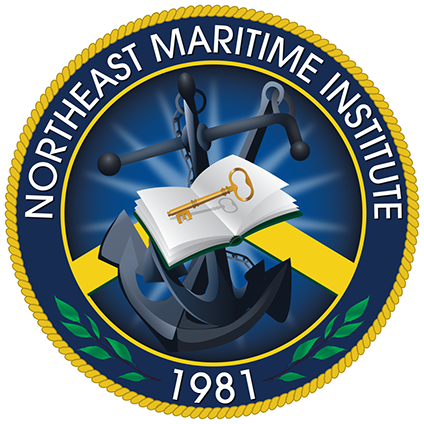Disability Services Mission
The mission of the Disability Services is to assist students with disabilities at Northeast Maritime Institute in achieving their educational, career, and personal goals through the full range of institutional and community resources. The office ensures that students with disabilities receive support services and accommodations that permit equal access to Northeast Maritime Institute programs and the opportunity to realize their potential and develop effective self-advocacy skills.
Disability Services Purpose
Northeast Maritime Institute is committed to providing reasonable accommodations and integrated access for students with disabilities to all available academic, social, and recreational programs and activities. Disability Services at Northeast Maritime Institute, as required by the Americans with Disabilities Act (ADA) of 1990 and Section 504 of the Rehabilitation Act of 1973, works closely with students, administrators, and faculty to develop and implement individualized accommodations tailored to students’ needs.
Appropriate support services coordination is provided by the Student Disability Coordinator. Disability Services serves students with hearing, visual, mobility, medical, and psychiatric disabilities. The Student Disability Coordinator also works with College administrators to develop policies and procedures pertinent to students with disabilities and acts as a general information and referral service on disability issues.
Program Specific Restrictions
Certain programs offered by Northeast Maritime Institute restrict students with physical disabilities under certain circumstances due to United States Coast Guard requirements. For these programs, all students are required to complete a United States Coast Guard physical examination prior to participating in the program. This assures Northeast Maritime Institute and the student that they are able to successfully complete the program and licensing requirements.
These programs include:
- Associate Degree of Applied Science in Nautical Science
- Licensing courses for Continuing Education
Legal Rights
Section 504 of the Rehabilitation Act of 1973 requires that:
“No otherwise qualified individual with a disability in the United States… shall, solely by reason of her or his disability, be excluded from the participation in, be denied the benefits of, or be subjected to discrimination under any program or activity receiving Federal financial assistance…”
Section 504 and Title II of the Americans with Disabilities Act (ADA) prohibit the discriminatory assignment of disabled students to segregated classes or facilities. These laws apply to elementary and secondary as well as postsecondary schools. In elementary and secondary schools, disabled students may be assigned to separate facilities or courses of special education only when this placement is necessary to provide equal educational opportunity to them. Any separate facilities, and the services provided in separate facilities must be comparable to other facilities and services.
To determine what the educational needs of a disabled student may be, schools must carry out preliminary evaluation and placement procedures.
Documentation Requirements
To be considered eligible for services through the Disability Services Office, students should:
- Make an appointment to meet with the Disability Services Coordinator
- Provide documentation of their disability. The documentation serves as the foundation for legitimizing the request for a reasonable accommodation. Appropriate documentation must include the following:
- A clear diagnosis of the disability by a licensed professional who has firsthand knowledge of the student’s condition and has experience and training in diagnosing and treating people with disabilities.
- Documentation of the disability must be current, preferably within four years. (The age of the required documentation also may be dependent upon the nature of the disability and the specific requested accommodation.)
- A statement of the functional impact and limitations of the disability on major life activities.
- A list of recommended accommodations with an explanation of the relevance of each to the diagnosed disabilities.
- Documentation must be on letterhead from a diagnosing physician or primary care physician’s office.
Special Event Accommodations
College students with disabilities who require accommodations or information about accessibility in connection with an event sponsored by Northeast Maritime Institute should contact the Disability Services Office. Students are encouraged to contact the Disability Services Office as soon as possible, preferably a minimum of two weeks prior to the event. The Office will work with event sponsors and individuals to provide reasonable accommodations and accessibility for the event.
Temporary Impairments
Temporary impairments are not listed as disabilities under the Americans with Disabilities Act (ADA); however, every attempt is made to provide support and assistance to students who experience a temporary disability. Accommodations may include the use of a laptop, extended time on exams, or transportation service.
Transition into College
Unlike high school, college students need to self-disclose their disability. This is a significant and important distinction in the accommodation process for college.
Students often feel that they do not want to disclose information about their disability in an effort to not “stand out” or in any way be different from their peers. The reality is, however, that utilizing these services facilitates their academic success.
Confidentiality
The information that students share with the Disability Services Office remains confidential with the following exceptions:
- A student signs a release of information which authorizes the sharing of information with professors or other appropriate college administrative staff.
- There is a risk of imminent harm to self or others.
Documentation and Registration
When a student registers with the Disability Services Coordinator, s/he must provide written documentation of a disability from the physician or mental health professional with whom s/he works with most closely. The student then meets with the Student Disability Coordinator to customize reasonable and appropriate accommodations for his or her particular situation.
Whenever possible it is best to register and establish accommodations at the beginning of each academic semester.
- Documentation and information regarding a student’s disability does not become part of a student’s academic record.
- If a student encounters medical or psychological difficulty during the course of the semester which warrants accommodations s/he should make an appointment to speak with the Student Disability Coordinator.
- Once accommodations are determined, a letter is sent to each of the student’s professors indicating the reasonable accommodations for the semester.
- It is the student’s responsibility to give adequate advance notice to both the professor and the Student Disability Coordinator in advance of the requested accommodations so that there is sufficient time to be able to provide the accommodation.
- The services featured here are specifically for students with physical, medical, temporary, or psychological disabilities, and provide an example of possible accommodations. Each disability will be thoroughly assessed and addressed appropriately. Accommodations might include, but are not limited to:
- Distraction-free testing environment
- Electronic textbooks (when available)
- Additional Tutoring Assistance
- Assistance with meal planning for food allergies
Alternate test-taking Options
A room may be reserved for a student to take an exam. The student taking the exam leaves his or her backpack and cell phone with the designee, who proctors the exam.
Alternative Testing Format
- There are situations where the possibility of an alternate testing format is presented as a reasonable accommodation for students. A student’s documentation must support the need for this accommodation, and the student and faculty member must agree on an acceptable alternate testing format for a particular course.
- Students requesting an alternate testing location must inform both their professor and the Student Disability Coordinator of an upcoming exam at least 72 hours prior to the exam in order for arrangements to be made.
- Instructors are responsible for bringing an exam to the testing location, as well as picking up the completed exam.
Modified Deadlines
There are students whose documentation supports the need for a modification of deadlines for assignments and examinations, particularly if multiple exams and assignments are due on the same day. Students in need of this accommodation may make arrangements for these modifications with their individual professors and the Student Disability Coordinator.
Use of Laptop for Exams
Students may request the use of a Northeast Maritime Institute designated laptop as indicated for medical reasons. Internet access is disabled, and students may either type responses themselves or request the assistance of a scribe if necessary.




